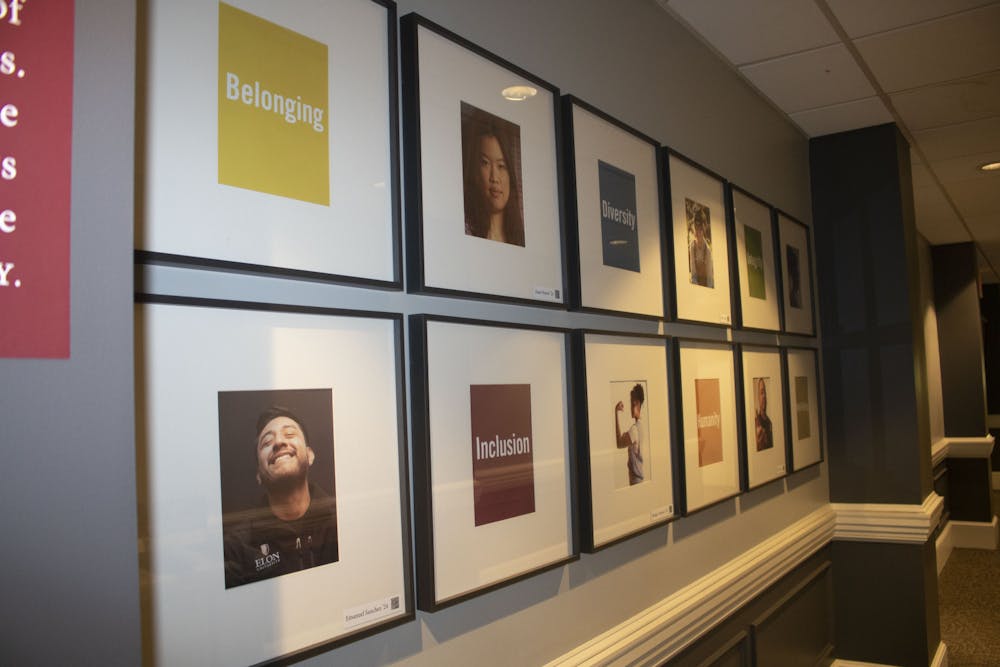After a recent national trend of defunding Diversity, Equity and Inclusion efforts, Naeemah Clark, associate provost for Academic Inclusive Excellence, wants to ensure Elon’s DEI efforts remain strong. The future of what DEI will look like at Elon is a conversation she wants to have.
“We have a commitment to the students and the community,” Clark said. “Sometimes it scares me.”
Elon has continued to be more inclusive with steps like the Advancing Equity Requirement class becoming a staple within the new curriculum.
Clark specifically said she is frustrated with institutions such as the University of Florida which are now defunding or taking away DEI departments or initiatives entirely. Last week the UNC Board of Governors Committee voted unanimously to strip away its DEI policies. Some people fear learning about DEI will further the “divide” of this idea of the oppressed v. the oppressor, but when students embrace DEI they can feel empowered, Clark said.
The idea of DEI is more than just talking about diversity, equity and inclusion, but it is about teaching students problem solving, fair outcomes, being ethical thinkers and more, Clark said.
“Talking about DEI is such a buzzword around on campuses and it’s getting a bad reputation,” Clark said.
Elon’s boldly strategic plan involves multiple themes, one of them being to thrive. Under “thrive” Elon hopes to continue to build a community that values diversity, equity and inclusion not only with the student body, but also faculty and staff. That starts with DEI training that the Office of Inclusive Excellence, Education and Developement provides.
Carla Fullwood directs education for faculty and staff. If professors are worried their classroom is not catering to every student, they can reach out to the Center for the Advancement of Teaching and Learning which is located on Belk Pavilion. If a professor wants to incorporate more inclusivity into their curriculum, Clark said they should reach out to Jessica Carew, assistant director of DEI in the core curriculum.
DEI training for faculty and staff is fluid. Faculty and staff are the ones to approach the Office of Inclusive Excellence, Education and Development and ask for more information about a certain topic to ensure they are inclusive in their classroom.
This year Elon introduced the AER where professors interested in teaching the class have to fill out an application and then take the summer institute they offer during the summer.
There are specific learning outcomes from the AER credit that the training teaches professors: “interrogating their own identities and positionality, and understanding the social construction of race and racism in the U.S.”
“That’s an opportunity for a faculty member to really build some relationships, set some expectations, and then also infuse content with diversity, equity, inclusion content within their curriculum or their discipline,” Randy Williams, vice president of the division of inclusive excellence, said.
The professors who teach these classes aren’t just anyone, but professors who have shown interest in learning themselves, some who have even done research surrounding DEI, Clark said. This year Clark is expecting around 25 professors to participate in the advancing equity seminar, and last year over 50 professors were there.
Their training is constantly updating with Phoenix Pathways, a tool for both students and faculty to learn about opportunities surrounding inclusive excellence, currently being under revision, she said.
He has seen more and more faculty and staff get involved with the training and has heard of teachers who have infused what they learned into their classes, Williams said.
“I go back to our mission statement, ‘foster respect for human differences,’ because our real world, our real society doesn't look like what we see here, on this campus is much more diverse in many ways,” Williams said.


